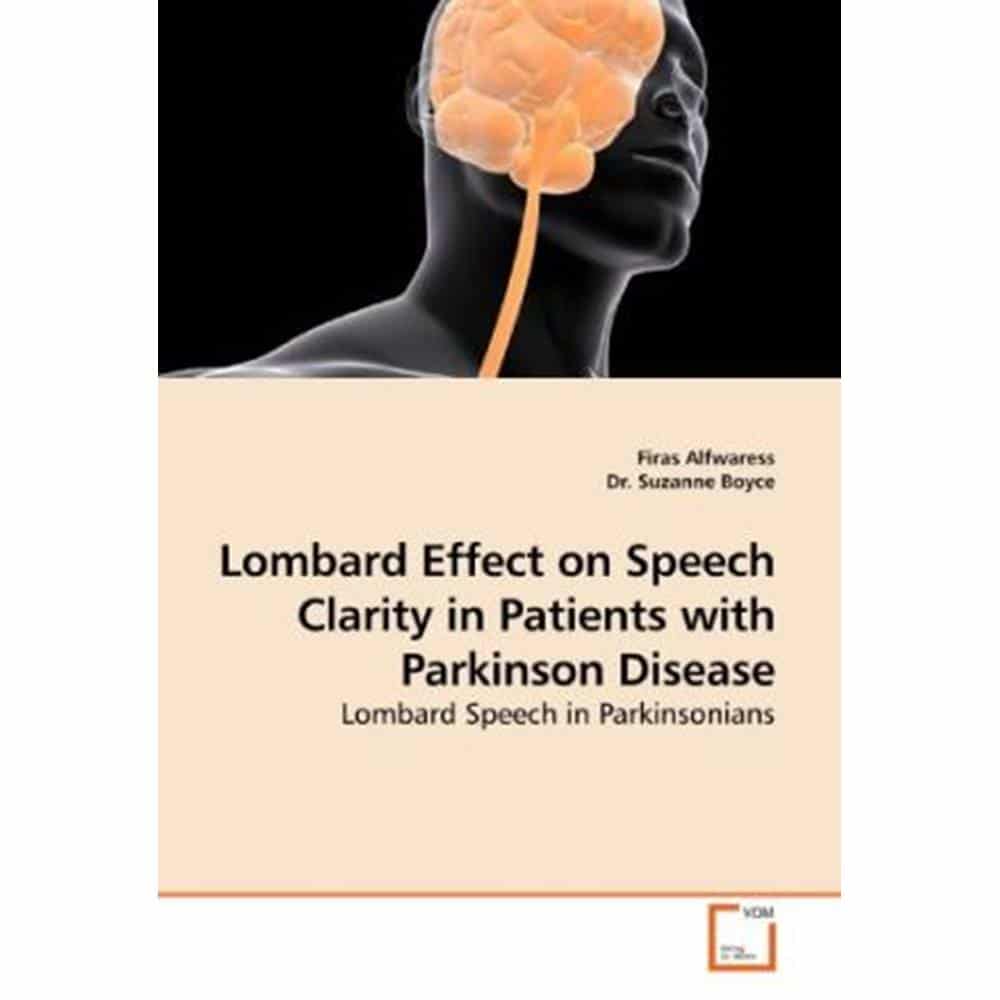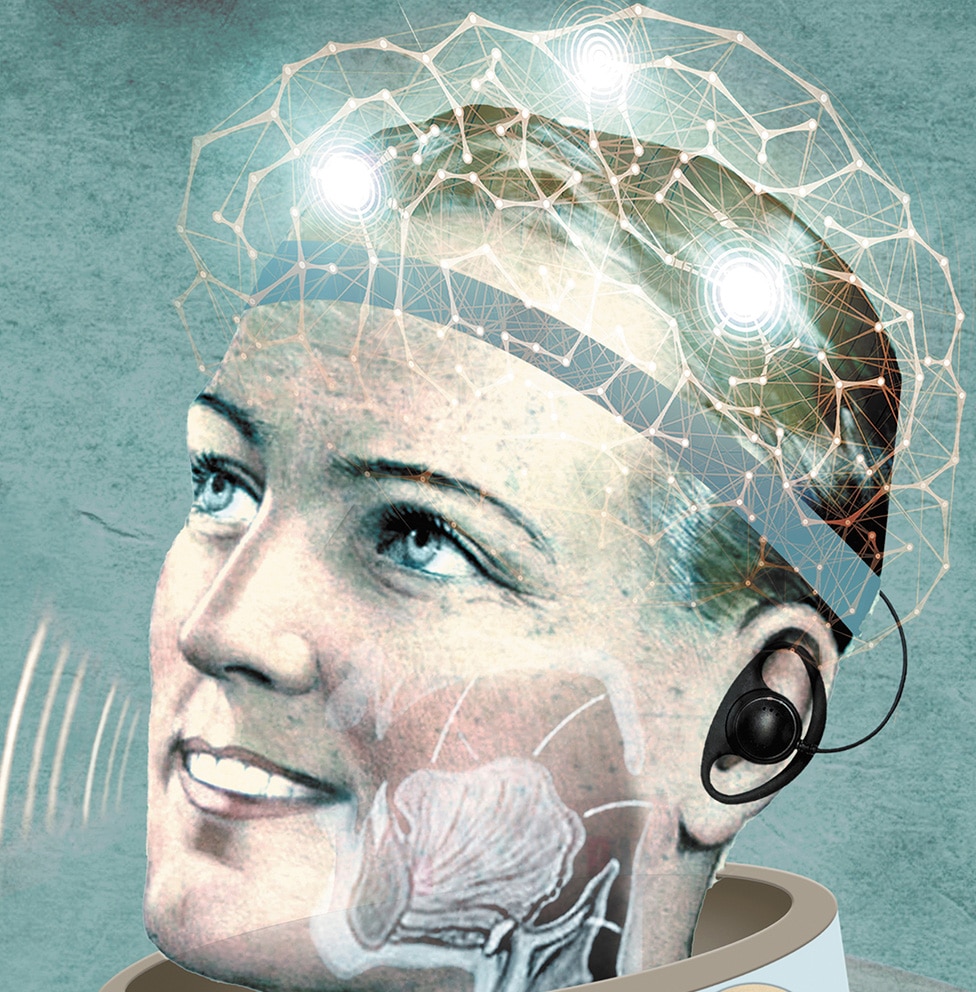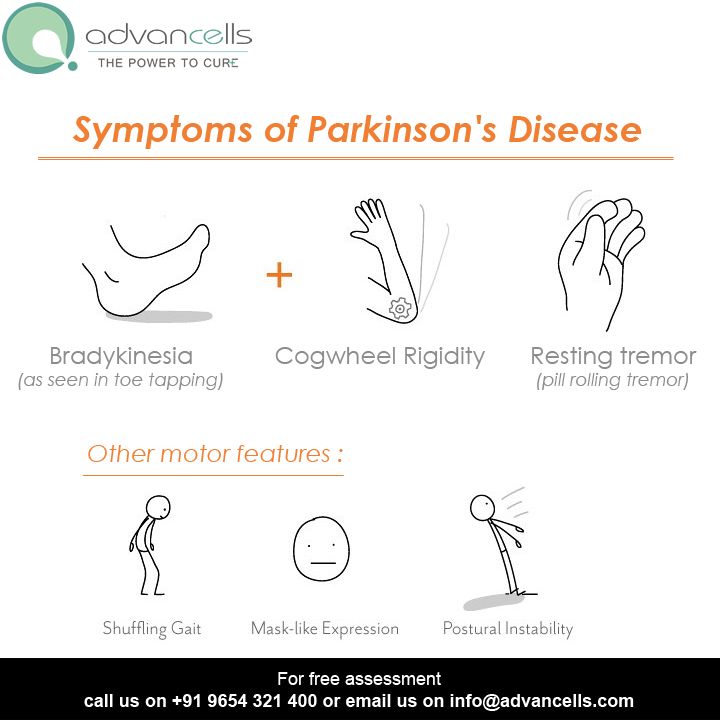How Can Listeners Help People Who Have Difficulty Speaking And Communicating
Here are some ways friends and family of people with Parkinsons disease can ease speaking and communication difficulties:
- Talk to the person with Parkinsons disease face-to-face only, and look at the person as he or she is speaking.
- Ask questions that require a simple “yes” or “no” answer.
- Repeat the part of the sentence that you understood.
- Ask the person to repeat what he or she said, to speak more slowly or spell out the words you did not understand.
Be Your Own Therapist
Which activities are most important to you? Once you answer, try the strategies below to see which ones work for you for each activity.
Use Personal Strengths
How can you build on your strengths and minimize your limitations? For example, if you have the strength of helping children enjoy reading, you could exercise that strength by reading to your grandchildren, by listening to them as they read or by playing a reading game that stimulates both your imagination and theirs.
One of your strengths may be thinking skills. One thinking skill is imagining doing the activity before doing it. For example, imagining writing big can actually help you write big. Another thinking skill is speaking the steps out loud. When combing your hair, try saying hold and comb, to avoid dropping the comb.
Make sure you are exercising. Improving strength, balance and endurance through exercise supports your participation in all sorts of activities. Whether it is dancing or walking to a neighbors house, find an enjoyable way to exercise
Lastly, be positive. Think, I will do rather than Ill try to and you may be more successful.
Change the Environment
Adapt the Activity
Which activities do you enjoy and how can you adapt that activity to make sure you can still do it? For example, if you love baking, perhaps substitute complex recipes with simpler ones.
B Feeding Modifications And Drooling
Adaptive utensils may be helpful for promoting and extending independent eating. Later-stage PD may be accompanied by dementia, which complicates management of feeding and swallowing, as patients may be unable to follow directions for some compensatory strategies. Patients also may be unable to feed themselves, necessitating a trained feeder. Feeders should be trained to monitor the safety of each swallow as well speed and duration of meal. Because patients with PD may take longer to swallow, a longer mealtime should be allowed.2 Relatedly, for patients with reduced pharyngeal wall contraction and posterior tongue base retraction or who demonstrate impulsive feeding behavior, taking too much food too rapidly can result in increased risk of aspiration owing to collection of food in the pharynx. Smaller bites at a slower rate should be encouraged. Enteral feeding by means of a percutaneous endoscopic gastrostomy may improve quality of life by providing nutritional support.2,43 For patients who are able, PEG does not preclude some nutrition by mouth for pleasure or nutrition.
You May Like: Best Supplements For Parkinson’s
Whenever We Speak Our Brain Must
How Can I Maintain And Enhance My Speech

Don’t Miss: Does Parkinson’s Change Your Personality
Inclusion And Exclusion Criteria
The literature search was limited to RCTs. All included studies met the following criteria: all participants with a diagnosis of PD > 18, and the study investigated the effect of SLT on voice and speech disorders. The primary outcomes consisted of SPL and VHI, and the secondary outcomes included STSD, fundamental frequency, and forced vital capacity. Studies that met one of the following criteria were excluded: no outcomes described, no control groups, or animal experiments.
Reduced Blinking And Eye Movement Disturbances
Other eye movement disturbances have been described in Parkinsons disease patients. These include an impaired ability to pursue a moving target with the eyes, difficulty initiating gaze shifts or taking the eyes off a face. Also, the ability to maintain eccentric gaze is impaired, and the blink frequency tends to be reduced. Of these abnormalities, only the latter tends to show significant symptoms, as reduced blinking can cause a feeling of dry eyes. This may be further enhanced by reduction in tear secretion, which is also common in Parkinsons disease. Management of dry eyes usually involves the use of artificial tears. It is rare that youll need any additional treatment to combat symptoms of dry eyes.
Patients with Parkinsons disease are also susceptible to visual hallucinations. These can be related to the underlying neurological illness or medications used for treatment. PD patients who have visual hallucinations respond well to antipsychotic medications such as quetiapine. Hallucinations should always be reported to the physician.
Read Also: Voice Amplifiers For Parkinsons
Don’t Miss: Drugs Used For Parkinson’s Disease
Speech Therapy And Pd
Research shows that 89 percent of people with Parkinsons disease experience speech and voice disorders, including soft, monotone, breathy and hoarse voice and uncertain articulation. As a result, people with PD report they are less likely to participate in conversation, or have confidence in social settings than healthy individuals in their age group.
Speech disorders can progressively diminish quality of life for a person with PD. The earlier a person receives a baseline speech evaluation and speech therapy, the more likely he or she will be able to maintain communication skills as the disease progresses. Communication is a key element in quality of life and positive self-concept and confidence for people with PD.
How Does Speech And Language Therapy Help Parkinsons Disease
Speech and language therapy can be very helpful to someone who has Parkinsons disease. Speech and language therapists will investigate swallowing, facial expression, and body language as well as language and speech. It is thought that up to half of Parkinsons patients will at some point have difficulty with communication and speech.
Speech therapy may also improve patients confidence in communicating with others which may in turn increase social and work opportunities.
What problems caused by Parkinsons disease can speech and language therapy help with?
Speech and language therapy can help with a number of problems which are caused by Parkinsons. Each persons treatment will be different, however, generally people will have the same sort of difficulties relating to speech, language and swallowing. This is because as the condition gets worse the control of the muscles will deteriorate and can include the tongue, larynx, pharynx and vocal cords.
Our speech and language therapists can help individuals who have Parkinsons disease with attention and listening problems, communication problems, swallowing difficulties, voice and speech problems.
Also Check: Research On Parkinson’s Disease
How Does Parkinsons Affect Speech
As dopamine levels decrease, communication between brain cells becomes more difficult resulting in variable movement and cognitive deficits. Speech, language, cognition, and swallowing are all affected by the lowered dopamine level. Thanks to advances in medical science, there are proven strategies and therapeutic activities that are highly successful in the recovery process and speech therapy has proven to be particularly effective in treating Dysarthria and Dysphagia .
What Causes Speech And Swallowing Difficulties Associated With Parkinsons
There are multiple reasons why Parkinsons can lead to speech and swallowing difficulties. For example:
- Parkinsons affects the muscles and nerves in your face, throat, mouth, tongue, respiratory system, and larynx. As these muscles and nerves weaken, you might have more speaking and swallowing difficulties.
- Parkinsons makes it difficult for your muscles to activate. This includes the muscles you need to speak and swallow, such as your throat, tongue, and larynx.
- Parkinsons affects the areas of your brain that control the speech process.
- Parkinsons changes the way your brain processes information. This can make it difficult to be part of conversations and communicate your thoughts.
- Parkinsons can cause your movements to become smaller and less powerful. This includes the movements you make with your mouth and throat that affect speech and swallowing.
- Parkinsons can reduce your sensory awareness. You might not realize that the volume, speed, or pitch of your voice has changed. You might feel that you are shouting even when you are speaking at a normal volume.
- Parkinsons can reduce your ability to prompt your own outward speech and begin conversations. Often, people with Parkinsons who are able to answer questions or respond to others have difficulty voicing thoughts without being asked.
Speech therapy can benefit people with Parkinsons.
Speech and language therapists are healthcare professionals who can work with patients to help improve:
Read Also: How Does Exercise Help Parkinson’s Disease
Support Groups And Networking
There are many different types of support groups. But they can broadly be defined as a group of people who have something in common in this context Parkinsons who meet to discuss and exchange ideas and information, or voice concerns. The group may also include partners, family and/or carers.
Each group will be individual with varying activities, meeting places, opportunities and capabilities. Sometimes there is a trained leader, such as a counsellor or social worker, although many Parkinsons groups are run by people with the condition as well as experienced volunteers. Groups often meet once a month, but many meet more regularly.
Most members find participating in a group supportive and a good way to interact with others in a similar position. Many Parkinsons organisations have support groups. To find out about how groups operate in your own country contact your national Parkinsons association.
Building Stronger Caregiving Partnerships Through Better Communication

In this one-hour talk, the speaker explains that diminished communication significantly impacts the social, emotional and physical burdens of caregiving. The fourth speaker at the Parkinsons Foundation Caregiver Summit, Angela Roberts, PhD, explains how changes in speech, cognition and hearing due to Parkinsons disease affects communication. She then offers specific strategies for optimizing communication.
Don’t Miss: New Surgery For Parkinson’s Disease
Why Does Parkinsons Disease Cause A Mask
PD is a chronic, progressive disease that affects the nerves, especially the nerves that control muscle movement. There are at least 43 muscles in the face, which move in concert to create expressions ranging from happiness to anger and despair. Dopamine is the neurotransmitter that transmits the signal from the brain to the muscles to produce movement. When PD damages the nerve cells that produce dopamine, the motor symptoms and ability to control muscles are affected.4,5
How Do They Appear In Pd
The muscle problems that occur in PD can lead to problems with swallowing. Swallowing problems can be hard to figure out at first but may include:2
- Unexplained weight loss
- Choking or coughing while eating or drinking
- “Pocketing” of food in the mouth
- Frequent heartburn or sore throat
- Trouble keeping food or liquid in your mouth while eating or drinking
You May Like: Does Sugar Affect Parkinson Disease
How Are Cognitive Problems Treated
Much remains to be learned about the basic biology that underlies cognitive changes in PD. Researchers work towards the development of diagnostic tests to identify people who seem to be at greatest risk for cognitive changes and to differentiate cognitive problems in people with PD from those that occur in another disorder related but different known as dementia with Lewy bodies.
Who Gets Parkinsons Disease
About 1 million people in the United States have Parkinsons disease, and both men and women can get it. Symptoms usually appear when someone is older than 50 and it becomes more common as people get older.
Many people wonder if youre more likely to get Parkinsons disease if you have a relative who has it. Although the role that heredity plays isnt completely understood, we do know that if a close relative like a parent, brother, or sister has Parkinsons, there is a greater chance of developing the disease. But Parkinsons disease is not contagious. You cant get it by simply being around someone who has it.
You May Like: What Are Signs And Symptoms Of Parkinson’s
Dysarthria Management Beyond The Individual: Group Therapy Approaches
Group treatment is also often implemented in university clinics and beyond, with the aim of improving speech communication in PD in a larger, supportive setting. De Angelis et al investigated the effects of 13 group therapy sessions on voice variables in 20 individuals with PD.50 Treatment focused on increasing phonatory function through the implementation of a high-effort program based on pushing exercises during phonation, as well as overarticulation techniques to maximize articulatory precision. Positive changes following speech treatment were reported, indicating greater laryngeal efficiency. Specifically, the study reported an increase in maximum phonation times and vocal intensity, a decrease in s/z ratio measures and a reduction in self-perceived deviant vocal characteristics . An improvement in speech intelligibility was also found as measured by participants self-evaluations, suggesting promise for such group treatment.
Therapy Programmes For People With Parkinsons
Your speech and language therapist may be trained in one of the following treatment programmes which are specifically designed for voice and speech therapy in people with Parkinsons.
Lee Silverman Voice Treatment is an intensive treatment programme involving several individual sessions over the course of one month together with home practice. The main focus is volume of voice. LSVT helps people to recognise whether their voice is quiet while working to produce a loud, good quality voice.
Most people can benefit from LSVT and it can be adjusted to individual communication needs and environments. Speech and Language Therapists need to undergo a two-day training in order to deliver the LSVT.
For more information and to find a trained clinician see www.lsvtglobal.com.
SPEAK OUT! by the Parkinson Voice Project is also an intensive treatment programme emphasising speaking with intent and converting speech from an automatic function to an intentional act. It also provides a Parkinsons Information Session. Therapy is intensive over a number of sessions together with home practise.
For more information and also to view the speech practise videos see www.parkinsonvoiceproject.org.
You May Like: Parkinsons Disease Free Online Course
You May Like: What Foods Should You Avoid If You Have Parkinson’s Disease
Parkinson’s Disease Treatments And Speech Language And Communication
The effect of mainstream PD treatments such as carbidopa-levodopa and deep brain stimulation on limb motor and gait symptoms are well established, but the effects on speech outcomes are less understood. Behavioral interventions, typically as a component of SLTs, are the mainstay intervention for communication impairments in PD. However, while studies of high intensity therapies that incorporate motor learning principles demonstrate efficacy for improving voice loudness,
How We Can Help People Who Have Parkinsons Disease

Parkinsons disease is a neurological disorder and is progressive, meaning it gets worse over time. People who have Parkinsons are lacking in the chemical dopamine as some of the nerve cells situated in the brain have died.
Speech and language therapy can help people who suffer from Parkinsons disease by offering support and solutions to communication and swallowing problems.
You May Like: Can A Teenager Get Parkinson’s Disease
Lee Silverman Voice Technique
LSVT is a speech treatment that has been proven to significantly improve speech after one month. Results can last up to two years following treatment. The LSVT method is easy to learn and must be repeated four days a week for four consecutive weeks to be effective. After a four-week treatment period, LSVT exercises should be done daily to maintain the improvements achieved.
Symptoms Of Parkinsons Disease
Parkinsons has four main symptoms:
- Tremor in hands, arms, legs, jaw, or head
- Muscle stiffness, where muscle remains contracted for a long time
- Slowness of movement
- Impaired balance and coordination, sometimes leading to falls
Other symptoms may include:
The symptoms of Parkinsons and the rate of progression differ among individuals. Early symptoms of this disease are subtle and occur gradually. For example, people may feel mild tremors or have difficulty getting out of a chair. They may notice that they speak too softly, or that their handwriting is slow and looks cramped or small. Friends or family members may be the first to notice changes in someone with early Parkinsons. They may see that the persons face lacks expression and animation, or that the person does not move an arm or leg normally.
People with Parkinson’s disease often develop a parkinsonian gait that includes a tendency to lean forward take small, quick steps and reduce swinging their arms. They also may have trouble initiating or continuing movement.
Symptoms often begin on one side of the body or even in one limb on one side of the body. As the disease progresses, it eventually affects both sides. However, the symptoms may still be more severe on one side than on the other.
Don’t Miss: What Is Vascular Parkinson’s Disease

